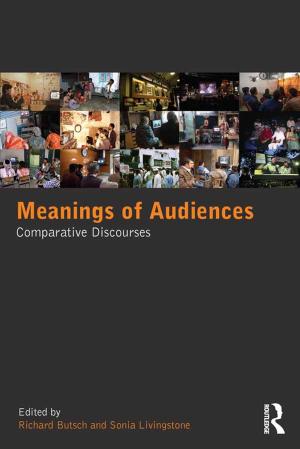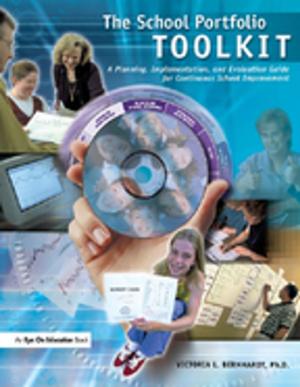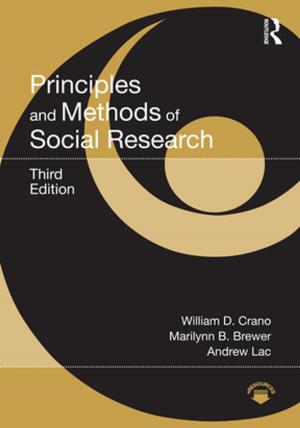Education Reform and Social Change
Multicultural Voices, Struggles, and Visions
Nonfiction, Reference & Language, Education & Teaching, Educational Theory, Multicultural Education| Author: | ISBN: | 9781136493386 | |
| Publisher: | Taylor and Francis | Publication: | November 12, 2012 |
| Imprint: | Routledge | Language: | English |
| Author: | |
| ISBN: | 9781136493386 |
| Publisher: | Taylor and Francis |
| Publication: | November 12, 2012 |
| Imprint: | Routledge |
| Language: | English |
Education Reform and Social Change is about addressing and changing the structures, policies, and practices of schools that differentially advantage white, middle class, native English speakers over students of color for whom English may be a second or additional language. It is also about helping people to think critically about what it is schools do and to consider more democratic, participatory, and equitable approaches.
The chapters in the text provide first-hand documentation of the voices, struggles, and visions of students, parent activists, advocates, attorneys, and educators involved in educational and social change processes. It chronicles real-life efforts of people challenging the status quo and working to build a more participatory, equitable, and transformative future.
The goal of this book is twofold: first, to consider the structures, policies, and practices that shape and limit educational change, and learning and teaching; and second, to document grassroots collaborative and creative efforts to change them. It offers a critical framework both for conceptualizing and for actualizing educational change.
Organized into four sections, this book provides a theoretical and practical framework for thinking about educational reform and social change -- one that moves from the broader structural concerns that are embedded in policy, to case studies that document activism and collaborative efforts to change school, city, and state policies, to classroom-based directions and initiatives, and to the construction of personal and collective visions for a more democratic, equitable, and just education. Each section includes an overview of the chapters, necessary background information to help the reader contextualize what follows, and guiding questions to encourage reflective thought and engagement with the text and to invite personal linkages. Two resource sections are included at the end of the volume: "Radical Educational Reform, Critical Pedagogy, and Multicultural Education: Selected Readings and Resources" and "National Organization Networks and Resources with a Critical Perspective."
Education Reform and Social Change is about addressing and changing the structures, policies, and practices of schools that differentially advantage white, middle class, native English speakers over students of color for whom English may be a second or additional language. It is also about helping people to think critically about what it is schools do and to consider more democratic, participatory, and equitable approaches.
The chapters in the text provide first-hand documentation of the voices, struggles, and visions of students, parent activists, advocates, attorneys, and educators involved in educational and social change processes. It chronicles real-life efforts of people challenging the status quo and working to build a more participatory, equitable, and transformative future.
The goal of this book is twofold: first, to consider the structures, policies, and practices that shape and limit educational change, and learning and teaching; and second, to document grassroots collaborative and creative efforts to change them. It offers a critical framework both for conceptualizing and for actualizing educational change.
Organized into four sections, this book provides a theoretical and practical framework for thinking about educational reform and social change -- one that moves from the broader structural concerns that are embedded in policy, to case studies that document activism and collaborative efforts to change school, city, and state policies, to classroom-based directions and initiatives, and to the construction of personal and collective visions for a more democratic, equitable, and just education. Each section includes an overview of the chapters, necessary background information to help the reader contextualize what follows, and guiding questions to encourage reflective thought and engagement with the text and to invite personal linkages. Two resource sections are included at the end of the volume: "Radical Educational Reform, Critical Pedagogy, and Multicultural Education: Selected Readings and Resources" and "National Organization Networks and Resources with a Critical Perspective."















